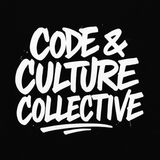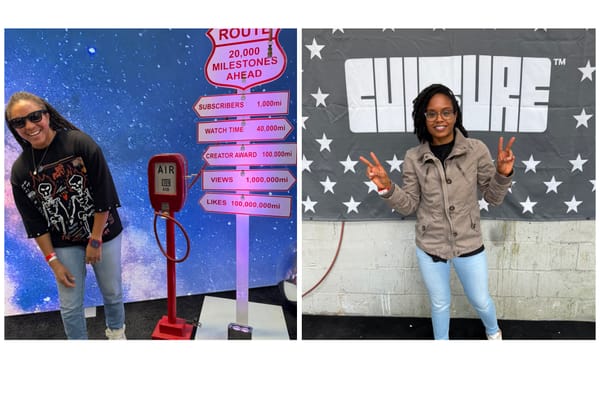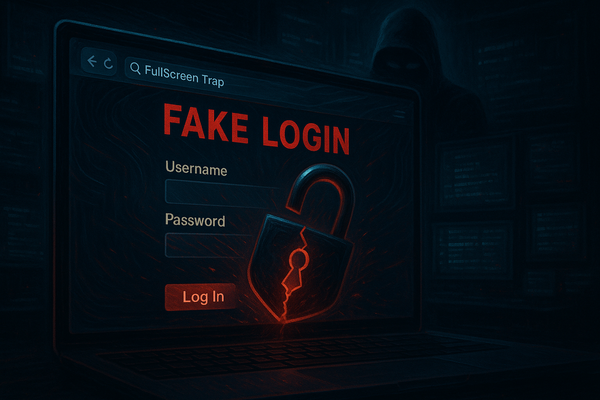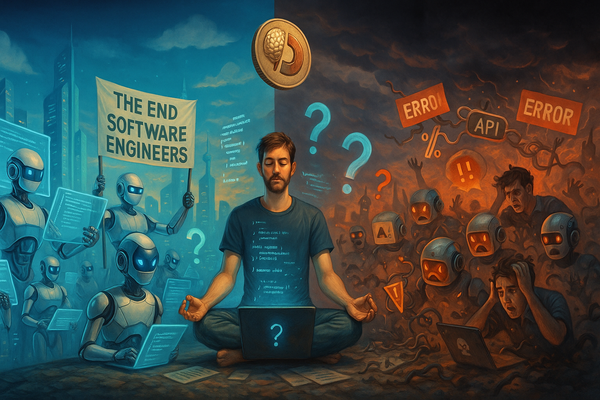The Next Up: How a Deployment Sparked One Soldier’s Cybersecurity Journey
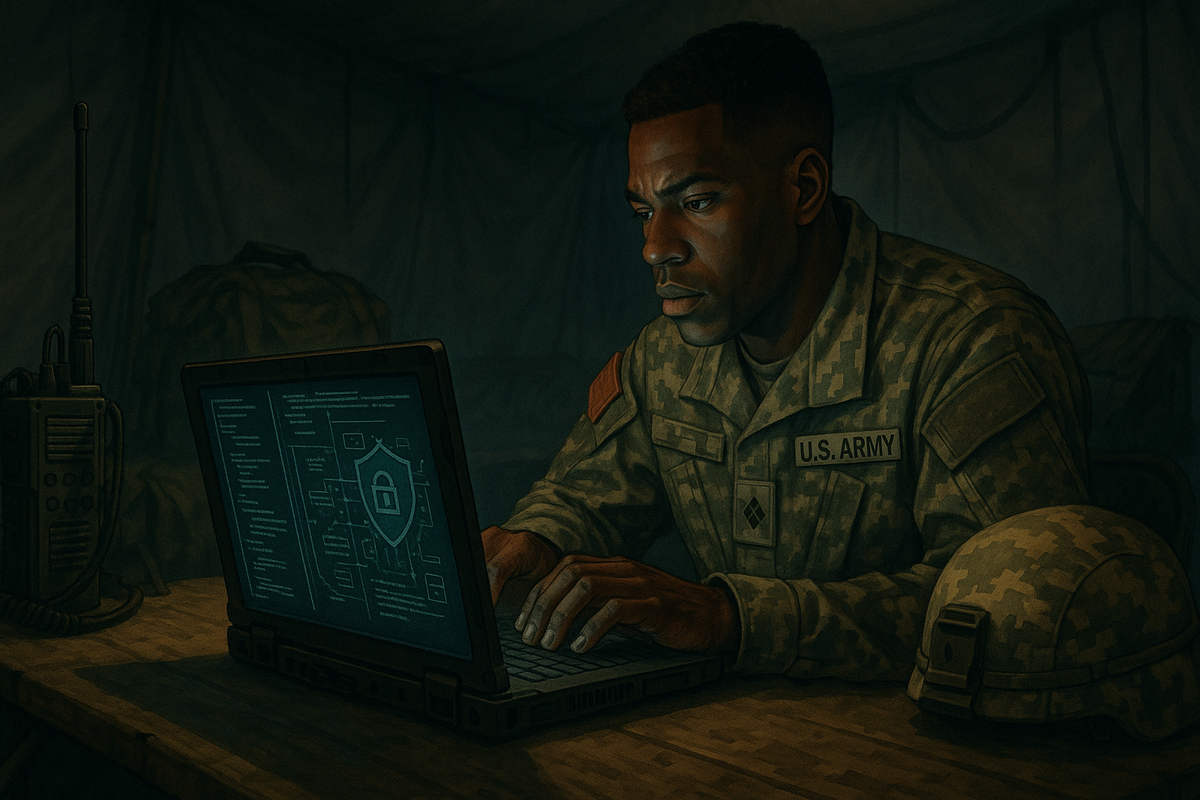

The journey into IT, Tech, or Cybersecurity isn’t always straightforward, and no one knows that better than the students currently grinding their way through it. The Next Up: Tech Students Sound Off is a recurring feature where we tap into the minds of up-and-coming tech professionals—those still in the classroom, learning the ropes, and figuring out their path.
We ask students real questions about why they chose IT, Tech, or Cybersecurity, what needs to change in tech education, and what advice actually helps (and what doesn’t). No fluff, no corporate talk—just real perspectives from the next generation of tech pros.
What made you choose IT, cybersecurity, or tech? Was it a passion, a great professor, a cool hack, or just the job security?
I chose to go to school for cybersecurity after serving in Operation Allied Refuge. In 2021, I was on a tour in Ramstein, Germany and the draw down to come out of Afghanistan had begun. The mission was to provide humanitarian aid for those fleeing the Taliban resurgence. Overall 20k Pashtun and Dari evacuees would arrive in Germany. I was providing support by using biometric identification technologies on in processing Afghans coming into Ramstein AFB.
If someone handed you a magic wand to fix one thing about tech education, what would you change to better prepare students for the workforce?
I recently finished school in December 2024 so my perspective is very fresh. I completed my entire degree online in about 2 years. I came in with no background in technology. That meant I had to fully immerse myself in all things tech from the ground up. With that experience in mind, I would suggest schools keep up with what’s current. I understand that colleges provide a foundation for students, but technology is always changing and growing.
We always hear about “the skills gap” in tech. Have you felt that gap in your own experience? What skills or knowledge do you wish you had before applying for jobs or internships?
I definitely feel the skills gap. I am someone who has zero background in tech. I got into technology because I saw how it can be used to help and ultimately protect people. I was inspired by a life changing experience in Germany. I’ve made it a point to stay a student of the game—whether that’s by taking advice, joining networking groups, tuning into the Stats on Stats Podcast, or reading articles to keep up with what’s current.
"I came in with no background in technology. That meant I had to fully immerse myself in all things tech from the ground up. With that experience in mind, I would suggest schools keep up with what’s current."
Many entry-level tech jobs require 3+ years of experience. How are you navigating this Catch- 22? Have you found any creative ways to gain relevant experience?
I have not found a way to navigate this at all. This is the biggest challenge and the one thing I wish I could change. I’m in the military so I already have a security clearance which gives me a slight edge in the job market, but I don’t have experience. I believe the best way to navigate the requirement of having 3+years of experience would be to look for pathway programs or internships that help college students transition from school to becoming a professional.
What’s been your biggest challenge so far in breaking into the industry—landing an internship, networking, getting certifications, or something else?
The biggest is challenge would definitely be breaking into the industry. Even for someone like myself whose in the military, I’m experiencing challenges. However, I’ve created a step-by-step breakdown of every move I’ve made up until now. I’m currently at the point of saving money, studying for certifications, and looking to build experience. There is NO ROAD map after college! There’s no GPS with a set address taking anyone to their desired technology job. I’ve had to ask questions from people who have more knowledge than me, seek out information, and find reputable information!
"The biggest is challenge would definitely be breaking into the industry. Even for someone like myself whose in the military, I’m experiencing challenges..."
What’s the best piece of career advice you’ve received as a student pursuing tech? And what’s the worst? (We need to call out the bad advice too!)
The best piece of advice I received as a student pursuing tech was “YOU BELONG IN TECH”. Like many, I struggled with self-doubt and constantly questioned if I was even good enough. Two years ago, I was at a tech event where I was one of three African Americans in the room. I met a woman of color and shared my story—who I am and, most importantly, how I got here. In that moment, she took the time to pour into me, and she told me – emphatically with unwavering conviction – “YOU BELONG IN TECH”. I was left speechless, trying to absorb all that she had said. After that, she shook my hand, never told me her name, and disappeared from the event. I later found out she was a gray hat!
If you could design your dream internship or first job in IT, cybersecurity, or tech, what would it look like? What skills would you want to gain, and what kind of projects would you love to work on?
My dream for my first cybersecurity job would be to have flexible work hours. I would like the ability to decide my work schedule based on my needs so that I can optimize my productivity. My dream is to do offensive cybersecurity work for the government.
"I got into technology because I saw how it can be used to help and ultimately protect people."
The tech industry is evolving fast—AI, cybersecurity threats, cloud computing, and beyond. Which trends or technologies excite you the most, and which ones make you nervous?
All of the evolution in the tech industry makes me nervous! However, I am excited to evolve along with it and find the spaces where I can continue learning.
What’s one misconception about working in IT, cybersecurity, or tech that you’ve encountered as a student? Have you ever felt like you had to prove yourself in this space?
One misconception about working in IT is that you have to be this nerd or super duper computer wiz. I believe you need those skills, but everyone is at different levels. Everyone isn’t a subject matter expert. We are all learning in real time.
If you could create a “Newcomer’s Survival Guide to Tech,” what’s the one piece of advice you’d include that no professor ever told you?
THERE IS NO ROADMAP AFTER COLLEGE!
This conversation has been lightly edited for flow and readability.
Corey Pierce is a distinguished member of the 165th Airlift Wing, assigned to the 158th Operations Squadron since 19 July 2019. Currently holds the rank of Technical Sergeant/E-6. Highly organized, take charge professional with more than 5 years of customer service and administrative experience. Comprehensive knowledge in providing quality morale, welfare, and support through continuously looking to improve. Strong problem solving and decision-making skills with the ability to develop and implement effective action plans. Commitment to being detail oriented in doing the job right the first time in completing all projects. A team leader, providing motivation and training by example.
